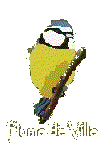Plume de Ville
Blue Tit 2007

 Blue
Tits 2007
Blue
Tits 2007Link WEBCAM: watch in live the last webcam picture inside the nest!
19 April
Always nice weather, 21°C in the afternoon.
She incubates her 12 eggs; the laying is finished. Great songs and recreations too. She seems to have changed color. Her plumage is duller and does not have any more the same blue as in the beginning of spring. The yellow of the belly is more gray than yellow. He keeps his beautiful colors.
She
should
incubate about fifteen days, if all goes well the first chick should
hatch towards
the 29-30 April.
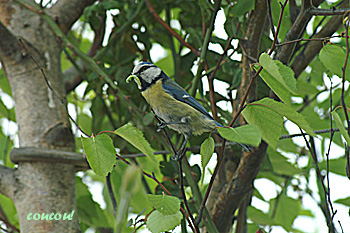
Back to first
image (javascript required)
It is rare for
her to be in stroll, and even less without him. Sometimes she is also
slow to answer
to his call when he comes. Ulysses shows a huge patience, remaining
several
minutes with the caterpillar in the beak. He awaits, poses his
caterpillar between
the claws and takes it again to ensure a good hold. The small sequence
above
lasted 6-7 minutes and during all this time he kept the caterpillar in
his beak.
Definitely, he did not understand. Curiously he did not enter the
nesting box
but he tried several times to look inside and ended up making a
decision…
She broods, periodically turning over her eggs to preserve an equal temperature.
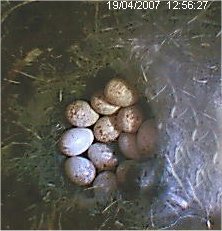
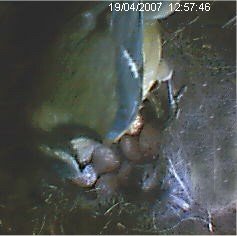
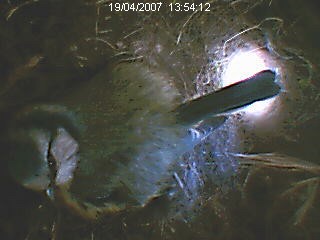
20
April
Nice and hot. (10°C-24°C)
She broods and almost does not leave the nest.
Ulysses always provides
the meals.
She remains much more in
the nest than last year, she almost does not move, she sleeps or turns
over its
eggs. The previous year the weather was much colder and bad and she
leaved often
as her male brought supplies very seldom. She was probably obliged to
go hunt
by herself more often, leaving her nest to the cold (end April 2006 it
made
only 5°C-
21
April
Same
superb
weather.
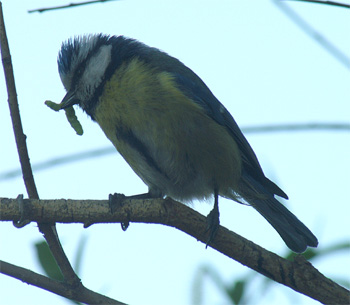
When her man arrives, she calls with small cries. It is her whom one hears the first if one is close to the nest, well before hearing him. Is it that we don't pay enough attention compared to the continuous noise of the city, or they communicate by sounds which are inaudible for us?
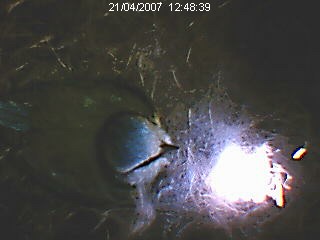
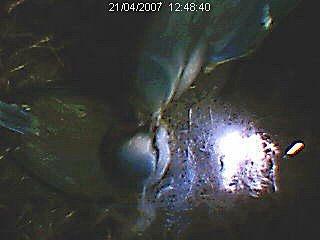
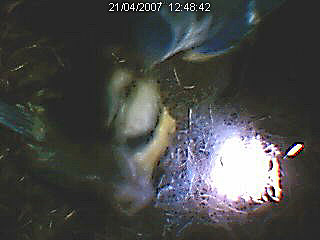
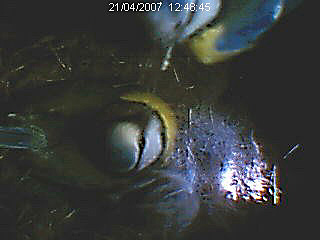
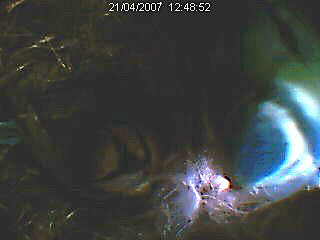
The lunch is delivered
at domicile; she did not move and put out her beak just what is needed
22
April
Always
beautiful and hot weather. 10°C-
Gourmand end of morning
Quite green and fleshy.
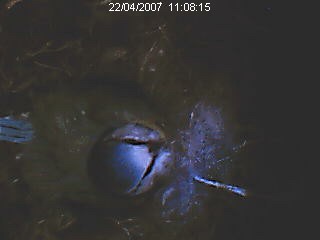
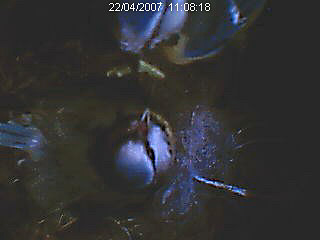
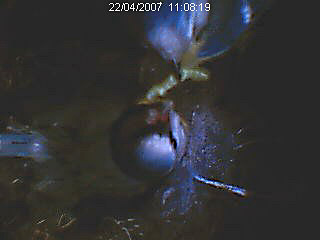
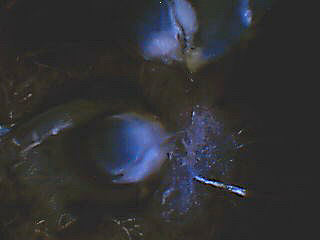
Un petit dessert.
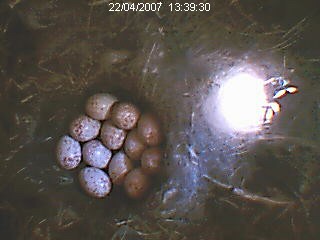
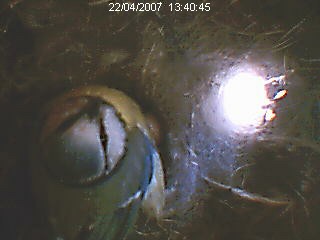
Ulysse arrive le bec plein!

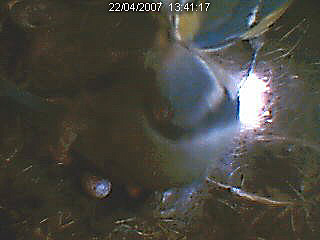
He is allowed to remain a little time while she enjoys her beakful.
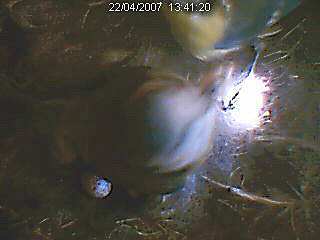
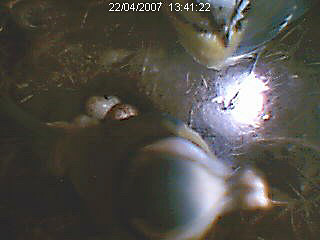
It is Ulysses on the right. She has just left leaving him alone and quite surprised in the nest!

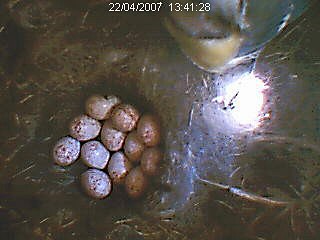
Not there?
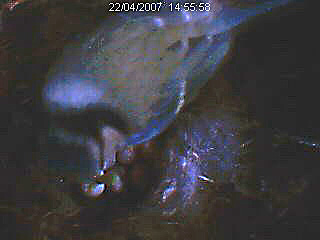
He entered the nest with its caterpillar but Penelope was not there! He looks in the bowl of the nest.
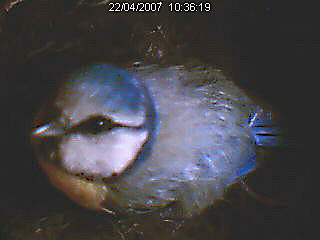
Roosted on
the edge of the nest.
Today
she
often perches on the edge to her nest to tidy up her feathers.
She
is much
more active and sleeps less. She stays often on the edge of the nest or
leaves
a few minutes to roost on the branch close to the nest, or goes for a
small
stroll in this splendid Sunday.
Always nice and hot weather (26°C in the afternoon).
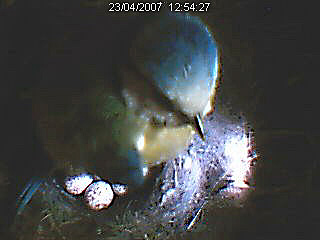
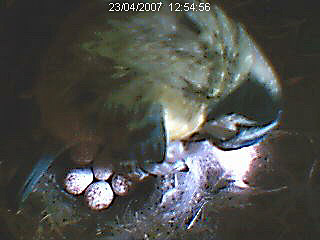
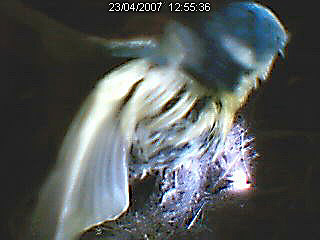
She seems
to have enough of being confined in the nest and she jiggles more and more. She goes to the
door, passes the head, leaves. And she sings. She likes to exit to sing
near
the nest. We do not hear him much any more.
The supply of caterpillars
continues. Here one sees well the nails of the titmouse which enable
they to
cling even to vertical surfaces.
She
left on
his call. After having swallowed the caterpillar she still claims for
more with
quivering wings.
This time, a brown carterpillar.
She has just taken the
caterpillar offered at the end of Ulysses beak.
She
perches
on a branch.
Monsieur and Madame great
tit pass regularly on the balcony. They quickly examine all the corners
of the
terrace. You just see them there and they have already jumped
elsewhere. They
go down easily on the ground and move hopping. Blue tits, on the
contrary, prefer
to remain in the trees and almost never descend on the ground.
24
April
Beautiful weather,
slightly overcast mackerel sky. Quite hot:
Breakfast.
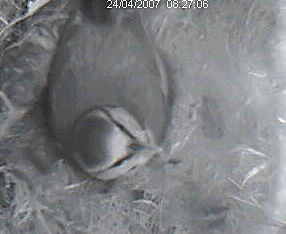
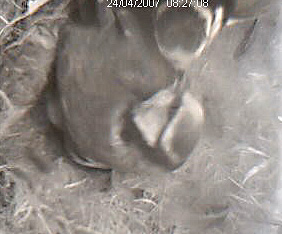
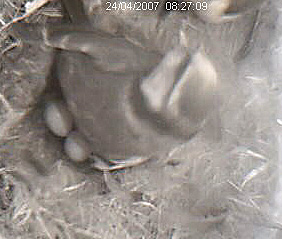
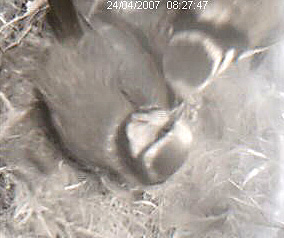
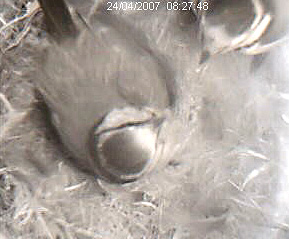
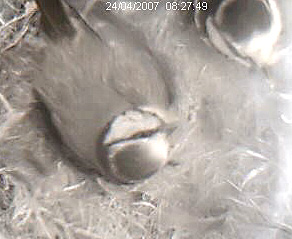
Hunting is good. Later in the course of the day, here he is, with a caterpillar. As usual he calls her. But no answer. Then he extend his neck to look inside the nesting box. He holds his caterpillar at the extremity of his beak.
It ends up going to see
with through the door, but always nobody.
Then he returns on his
branch and swallows the caterpillar. A small reward well deserved.
Penelope continues to leave
often. In fact she does not stop changing place. It is very hot today (
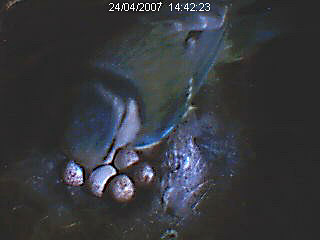
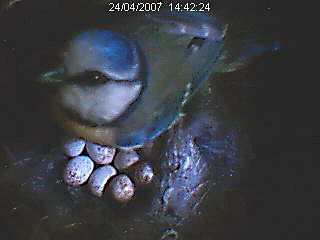
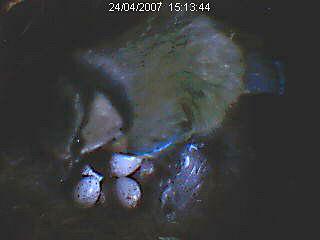
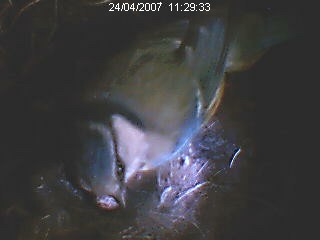
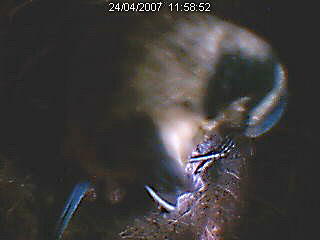
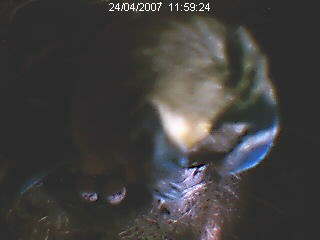
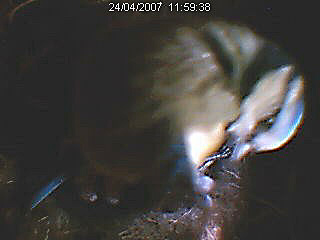
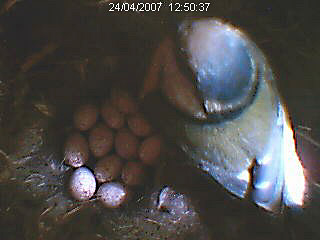
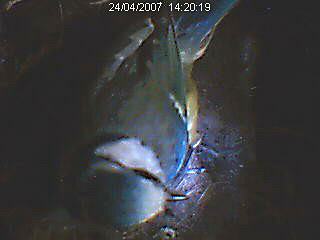
The swifts arrived today.
NEXT
